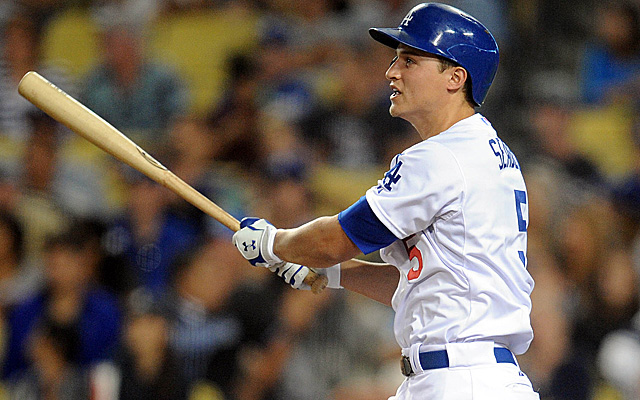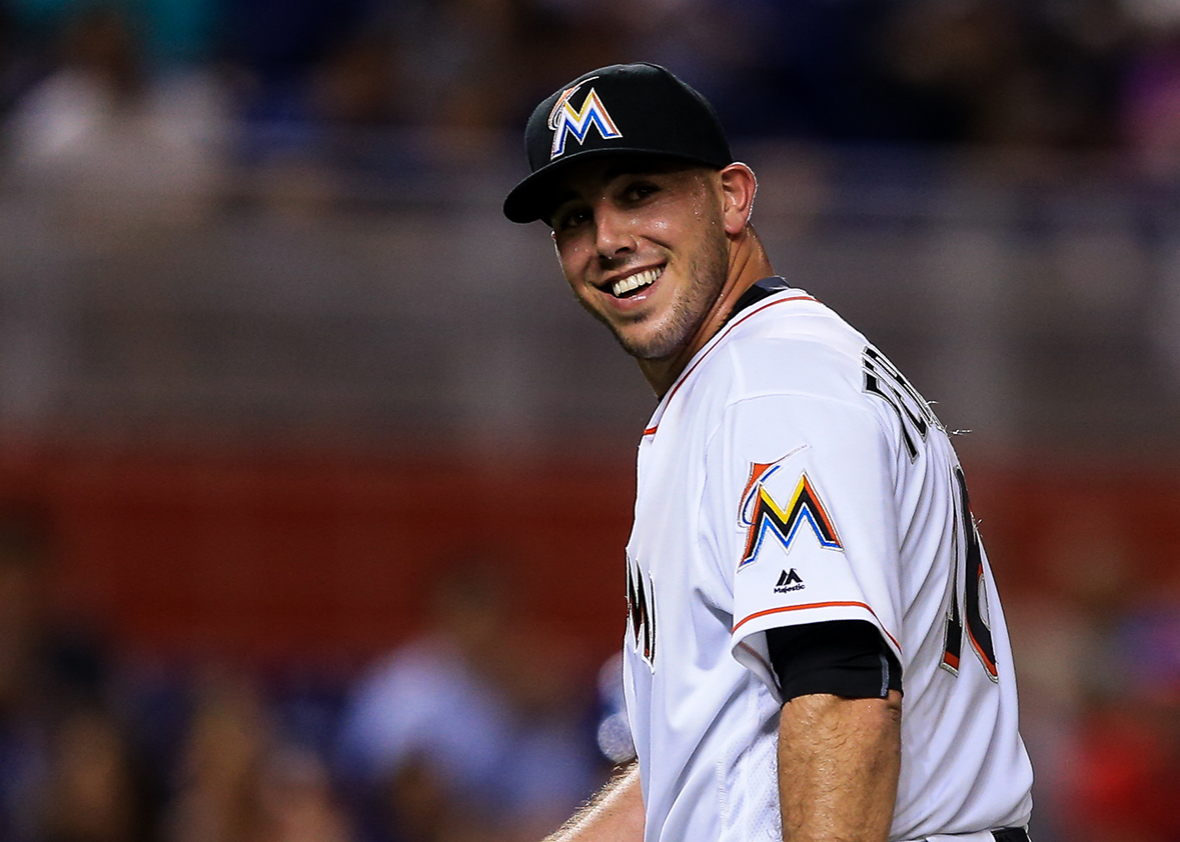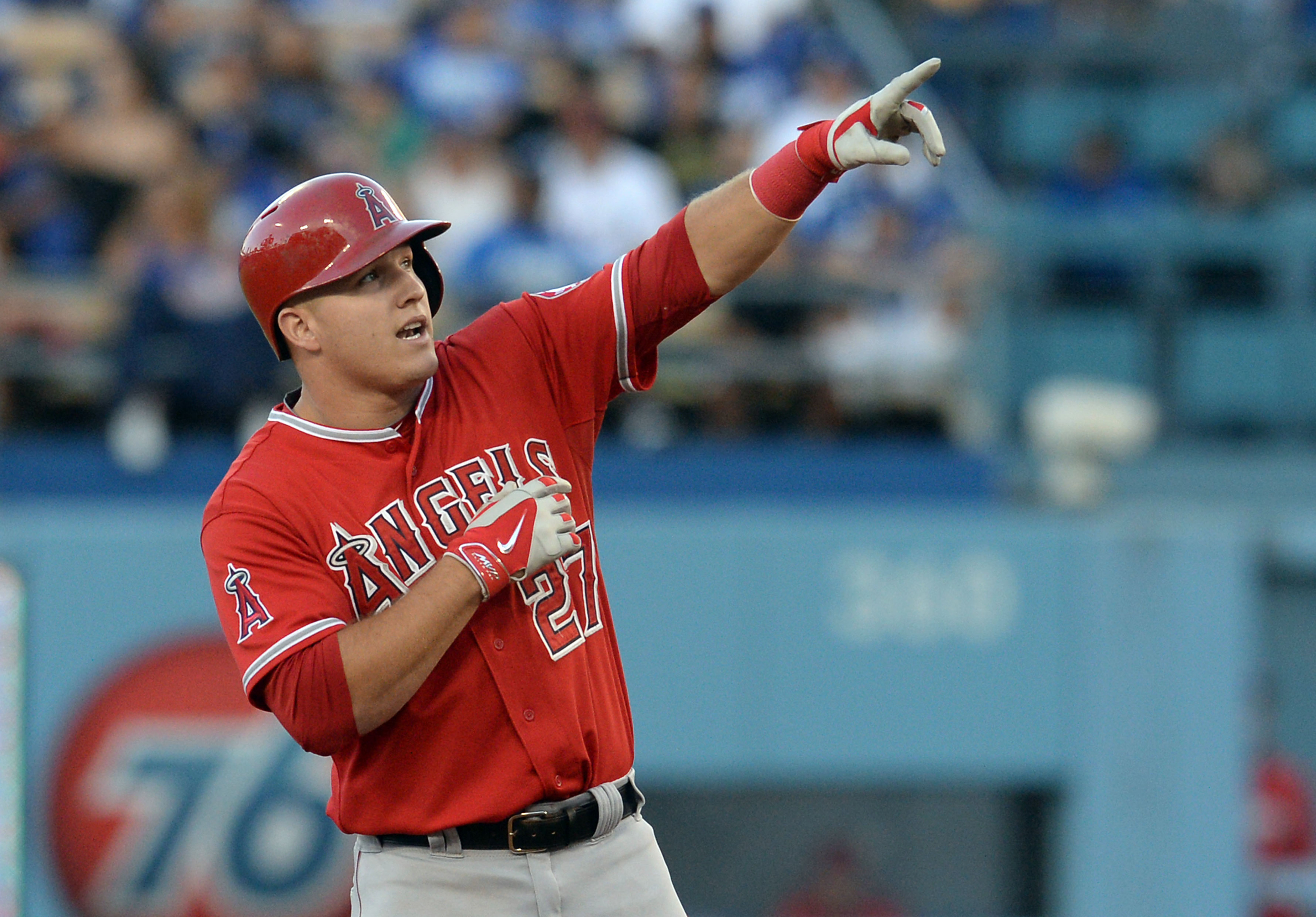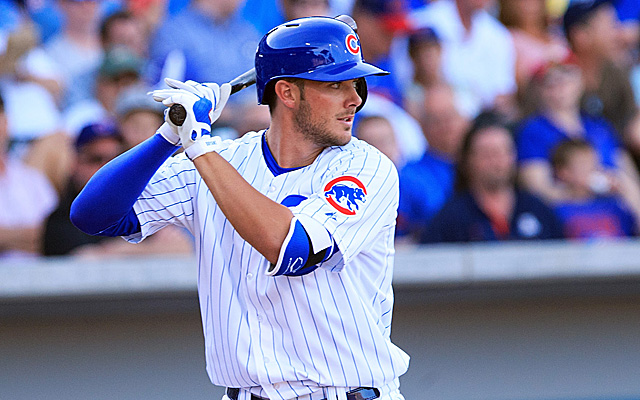For the most part, I've decided on a lot of these votes for awards already and it was just a matter of waiting for the final numbers. With those in the books, I am going to make my picks for Manager of the Year, Rookie of the Year, Cy Young Award, and Most Valuable Player for each league.
Manager of the Year
American League
 |
| Photo by Christian Petersen (Getty Images) |
This one was kind of a tough call. I could make an argument for John Farrell taking the Red Sox from worst to first, but I'm opting for Bannister for following up on a disappointing playoff exit with the best record in the American League despite not having a full season of Yu Darvish and Prince Fielder retiring mid-season. Considering I had them only as a wild card team this year, I think he's worthy of the award for the second straight year.
National League
 |
| Photo by Tom Lynn (Getty Images) |
I could also make reasonable arguments for Terry Collins of the Mets or even Dave Roberts of the Dodgers based on the injuries those two teams sustained and it ultimately not mattering because both teams made the playoffs. The Mets one is an interesting call to make because they looked dead in July and roared back to host the Wild Card Game. The Dodgers, meanwhile, had to survive without Clayton Kershaw for a long stretch of time and overcame the Giants to win the West. Ultimately though, I'm giving Maddon his second straight because the Cubs were the odds on favorite coming into the year, and if anything, they exceeded expectations this season and finished with the best record in baseball.
Rookie of the Year
American League
 |
| Photo by Brad Penner (USA TODAY Sports) |
I know there were a couple other names getting thrown around here, but what Gary Sanchez has done in limited action is pretty astounding. Normally I'd want to go with a guy who had played close to a full season, but that Sanchez has put up as much production in this short amount of time is amazing. The fact that the rest of the field leaves a ton to be desired may be something of a justification, but Sanchez has definitely earned this award.
National League
 |
| Photo from USATSI (Photographer uncredited) |
Let's see: putting up a x OPS, good for fifth in the National League, finishing second in the league among rookies in homers, all while playing a premium defensive position? This one is about as much of a no-brainer as you can get. Trevor Story made for a nice story kicking off the season, and his injury certainly hurts his argument, but Seager was more well-rounded at the plate, especially by leading all rookies in walks. I just don't see another legit argument here.
Cy Young Award
American League
| Photo by Patrick Smith (Getty Images) |
For pretty much my entire life, the Cy Young Award has been all but required to go to a starter, and I can kind of understand why. Starters pitch the bulk of the innings and put up the biggest cumulative stat numbers. But in a year where your qualifying ERA leader was at 3.00, color me a little underwhelmed. I flirted with giving the award to Justin Verlander, who led the American League in strikeouts, WHIP, and finished second in ERA and OPSA, and Corey Kluber finished third in ERA, fourth in WHIP, and fifth in strikeouts for some consideration as well. All outstanding... but I keep coming back to this absolutely ridiculous relief season. The only relief pitcher in my lifetime to pitch at least 30 games with a lower ERA was Kevin Siegrist in 2013, though he had a smaller sample size. Britton allowed seven runs all season; for comparison, Francisco Rodriguez, who finished second in the American League in saves, allowed 24 fewer runs in almost nine more innings. That's insane. I'll take the historic performance this year.
National League
 |
| Photo by Rob Goldy (Getty Images) |
There are so many different directions we could go with this award. Kyle Hendricks came out of nowhere to lead the majors in ERA, though Max Scherzer definitely has a better argument for being not too terribly far behind in that category while leading the league in WHIP, strikeouts, and batting average against. Clayton Kersaw missed a bunch of time to injury, but when healthy he was absolutely ridiculous, finishing 14th in strikeouts and would have led the league in ERA and batting average against had he qualified for those titles. But given the circumstances from a week or so ago, taking a guy who finished in the top 10 in WHIP, ERA, and strikeouts (with his strikeout rate being ridiculous) and keeping the ball in the yard better than any contender other than Noah Syndergaard whose career was tragically cut short seems like the least we can do. Rest in peace, Jose. Thank you for everything.
Most Valuable Player
American League
 |
| Photo by Jayne Kamin-Oncea (USA TODAY Sports) |
The term "valuable" is such a hotly contested word when we have these arguments. I'm generally of the opinion that an MVP should be the definitive best player on a playoff team, unless there's somebody who is far and away the best player in the league. In this case, that would be one Mike Trout. He led the American League in Wins Above Replacement, finished second in the league in OPS to David Ortiz, led the American League in walks, and played above average defense at a premium position. If you're dead set on taking somebody from a playoff team, I think the best counterargument is Ortiz, though there are other guys (Mookie Betts and Dustin Pedroia, to name two) who contribued as well and Ortiz is a DH. Trout is far and away the best player in the American League, but it's a shame that the Angels' brass has surrounded him with crap for most of his career, otherwise he'd be on a Bonds-like MVP binge.
National League
 |
| Photo from USATSI (Photographer uncredited) |
All right, before you all start decrying me as a homer, let's look at the numbers. Bryant leads the National League in Wins Above Replacement by more than a full win over Nolan Arenado, though Arenado did slug at a higher rate, hit a couple points higher than Bryant, and belt a couple more home runs. 2015 nemesis Daniel Murphy tied Joey Votto for the league lead in OPS and finished a point behind D.J. LaMehieu in the batting race while doubling more than Bryant and striking out significantly fewer times, but Bryant had more power. The deciding factor for me is that while Arenado is a better defensive player at third base and Murphy is arguably a more disciplined and well-rounded hitter, Bryant took some of their best skills and showed versatility by playing six different positions over the course of the season and at most of them playing above average defense. His willingness to play wherever Joe Maddon asked him to is something guys like Murphy and Arenado don't boast, and it contributes to Kris Bryant's ascension to the highest level of the game.

No comments:
Post a Comment